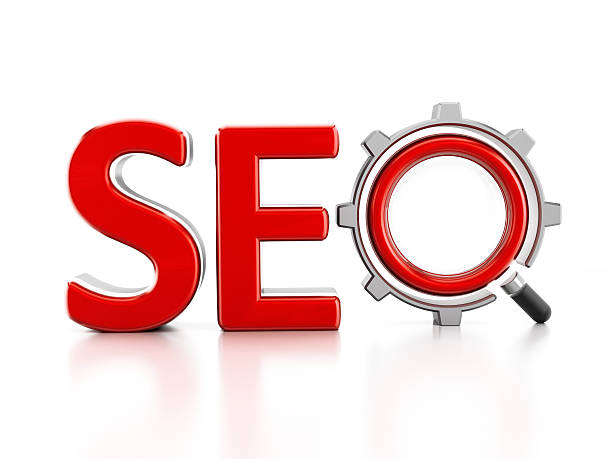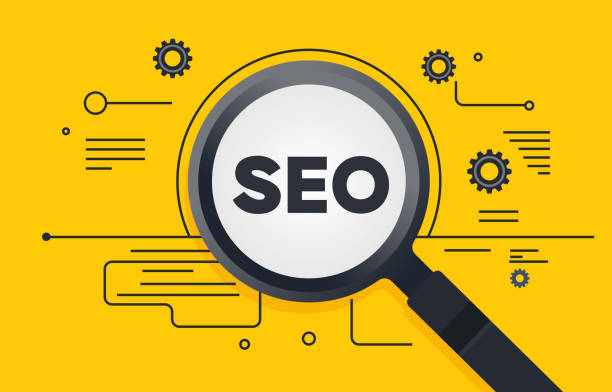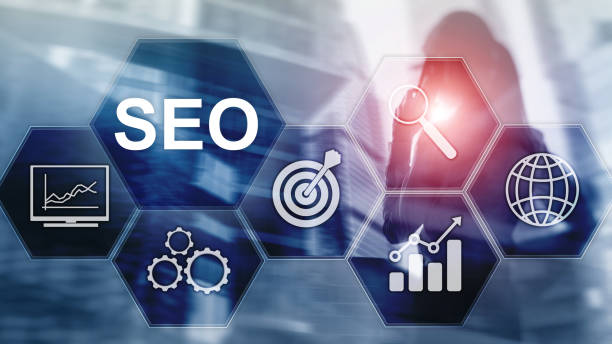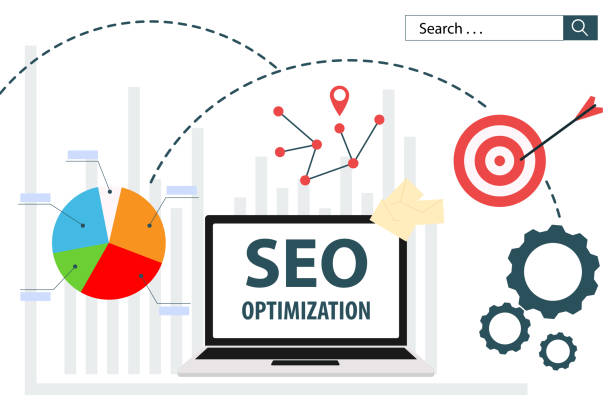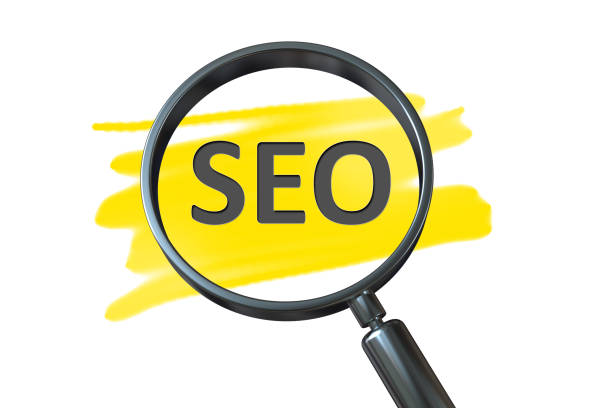What is Technical SEO and Why Does it Matter?
Technical SEO focuses on optimizing the technical aspects of a website to improve its ranking in search engines like Google.
This includes things like site speed, crawlability, indexability, URL structure, and mobile-friendliness.
While on-page and off-page SEO focus on content and link building, technical SEO provides the foundation for an optimized website.
A website with strong technical SEO is more easily discovered and indexed by search engine bots.
As a result, the chances of being seen in search results increase.
A good user experience is very important for visitors.
High speed, responsive design, and ease of use increase user satisfaction and reduce bounce rates, which directly affect site rankings.
Technical SEO makes your site more visible, resulting in increased organic traffic.
Organic traffic is visitors who come to your site through search results, which typically have higher conversion rates than other traffic sources.
By improving technical SEO, your website ranks better for keywords related to your business.
This makes it easier for potential customers to find you.
Are you frustrated by the low conversion rate of your online store?
Rasaweb offers a definitive solution with professional e-commerce website design!
✅ Increase your sales and revenue
✅ Unparalleled user experience for your customers
⚡ Get a free consultation now!
Analyzing and Reviewing Website Structure for SEO
Website structure is one of the most important aspects of technical SEO.
A proper structure enables search engine bots to easily navigate your site and understand its content.
Also, a good structure helps users quickly find the information they are looking for.
A logical and organized structure helps search engines understand the relationships between the different pages of your site.
This improves the ranking of your pages.
By creating an efficient structure, users can quickly and easily access different pages of your site.
This increases user satisfaction and reduces bounce rates.
Optimizing URL structures is an important aspect of SEO.
Short, descriptive URLs containing relevant keywords help search engines better understand the content of the page.
For example, instead of `example.com/page123`, use `example.com/seo-technical-guide`.
Click here to preview your posts with PRO themes ››
By using an XML sitemap, you can inform search engines which pages exist on your site and how they are related to each other.
This helps with better crawling and indexing of the site.
Optimizing Site Loading Speed
Website loading speed is a critical factor in #SEO and user experience.
Users who have to wait a long time for pages to load are more likely to leave the site.
Google also considers site speed as one of the important ranking factors.
Sites that load faster rank better in search results.
Google has announced that site speed is an important factor in their ranking algorithm.
Users are usually not patient and expect web pages to load quickly.
High site speed increases user satisfaction and reduces bounce rates.
Large and unoptimized images can slow down site loading speed.
By compressing and optimizing images, you can reduce their size and improve site speed.
Using modern image formats such as WebP is also recommended.
Excessive and disorganized CSS and JavaScript code can slow down site speed.
By minifying (reducing the size) and combining CSS and JavaScript files, you can reduce the number of HTTP requests and improve site speed.
Using a suitable and optimized Content Management System (CMS) can have a big impact on site speed.
WordPress is one of the most popular CMSs, but installing too many plugins and using heavy themes can slow down site speed.
Choosing a lightweight theme and using only the necessary plugins helps improve site speed.
| Factor | Description |
|---|---|
| Image Optimization | Reducing size and using appropriate formats |
| Code Minification | Reducing the size of CSS and JavaScript files |
| Using CDN | Delivering content from servers near the user |
| Enabling Caching | Storing content in the user’s browser |
Mobile-Friendliness and SEO
With the increasing use of mobile phones for internet searches, website mobile-friendliness has become more important.
Google has introduced the Mobile-First Indexing algorithm since 2015, which means that the mobile version of your site is prioritized for ranking in search results.
Google uses the mobile version of your website to index and rank.
If your site is not optimized for mobile devices, it may not rank well in search results.
Mobile users expect websites to load quickly and be easy to use.
A good user experience on mobile devices increases user satisfaction and reduces bounce rates.
Responsive Design means that your website automatically adapts to the screen size of different devices (such as mobile phones, tablets, and computers).
This is the best way to create a mobile-friendly site.
Google’s Mobile-Friendly Test is a free tool that you can use to check the mobile-friendliness of your website.
This tool shows you whether your site is optimized for mobile devices or not.
Loading speed is even more important on mobile devices.
Using AMP (Accelerated Mobile Pages) can help improve page loading speed on mobile devices.
Do you dream of a thriving online store but don’t know where to start?
Rasaweb is your comprehensive e-commerce website design solution.
✅ Attractive and user-friendly design
✅ Increased sales and revenue⚡ Get a free consultation
Optimizing Internal Links for SEO
Internal links are links that connect different pages of your website to each other.
Optimizing internal links is one of the most important aspects of technical SEO.
Internal links help search engines understand your website structure and identify more important pages.
By creating proper internal links, you can increase the power and authority of different pages on your site.
Internal links help users easily navigate your site and find the information they are looking for.
Use appropriate anchor text for internal links.
Anchor text is the text that is linked to another page.
Anchor text should be relevant to the content of the destination page.
Avoid general anchor texts such as “click here.”
The best method is to use keywords related to the destination page in the anchor text.
Creating a logical and organized internal link structure is very important.
More important pages should receive more links from other pages.
Avoid creating too many links.
Too many links on one page can confuse search engines and users.
Broken links have a negative impact on SEO.
Regularly check your site’s internal links and fix broken links.
Site Indexing and Crawling
Indexing and crawling are processes used by search engines to identify and store website content.
If your site’s pages are not indexed, they will not appear in search results.
The robots.txt file tells search engines which pages of your site they should not crawl.
Make sure this file is configured correctly and does not block important pages of your site.
Using noindex tags on inappropriate pages can help prevent unnecessary pages from being indexed.
An XML sitemap helps search engines easily find all the pages on your site.
Submit the sitemap to Google Search Console to speed up the site indexing process.
Google Search Console is a free tool from Google that helps you check the indexing status of your site.
Using this tool, you can identify and fix crawling and indexing errors.
Site loading speed is an important factor in crawling.
Sites that load faster are crawled more easily by search engines.
Duplicate content can lower your site’s ranking.
By using canonical tags, you can tell search engines which version of a page should be considered the main version.
Website Security (HTTPS) and SEO
Website security is an important factor in SEO.
Google has announced that using HTTPS (Hypertext Transfer Protocol Secure) is a ranking factor.
HTTPS protects the information that is exchanged between the user’s browser and your site’s server.
This increases users’ trust in your site.
Using HTTPS is important for SEO.
Google ranks sites that use HTTPS higher.
HTTPS protects users’ information and increases their trust in your site.
In 2014, Google announced that HTTPS is a ranking factor.
Migrating from HTTP to HTTPS can have a positive impact on your site’s ranking.
Obtaining an SSL (Secure Sockets Layer) certificate is necessary to enable HTTPS.
You can purchase an SSL certificate from reputable companies.
After installing the SSL certificate, you must change all your site’s internal links to HTTPS.
Also, you need to make sure that all resources (such as images and CSS and JavaScript files) are loaded via HTTPS.
Using tools like Google Search Console to check the HTTPS status of your site is essential.
If your site does not load with HTTPS, the browser will warn users.
This can negatively impact user experience and your site’s ranking.
| Problem | Solution |
|---|---|
| HTTP links on HTTPS site | Updating internal links to HTTPS |
| HTTP resources on HTTPS site | Ensuring all resources are loaded via HTTPS |
| SSL certificate not installed | Obtaining and installing a valid SSL certificate |
| Mix Content | Checking and resolving Mix Content warnings |
Fixing Common Technical SEO Errors
Websites may face numerous problems and errors that negatively impact their SEO.
Identifying and fixing these errors is one of the most important tasks of SEO specialists.
404 errors occur when a page on your site does not exist.
These errors can frustrate users and lower your site’s ranking.
Using tools like Google Search Console, you can identify and fix 404 errors.
A 301 redirect is a permanent redirect that directs users and search engines to another page.
Use 301 redirects to move deleted or modified pages.
Broken links are links that point to non-existent or deleted pages.
Broken links can frustrate users and lower your site’s ranking.
Duplicate content is content that exists on multiple pages of your site.
Duplicate content can lower your site’s ranking.
By using canonical tags, you can tell search engines which version of a page should be considered the main version.
Meta tags provide information about the content of the page to search engines.
Make sure that the title and description meta tags are optimized for all pages of your site.
Slow site speed can lower ranking and result in a poor user experience.
By optimizing images, minifying code, and using a CDN, you can improve your site speed.
Are you losing customers due to the old appearance or slow speed of your online store? Rasaweb’s expert team solves these problems with professional e-commerce website design!
✅ Increase customer trust and brand credibility
✅ Blazing fast speed and great user experience
Get a free consultation with Rasaweb now ⚡
Essential Tools for Technical SEO
To perform SEO technically effectively, you need the right tools.
Fortunately, there are various tools available that can help you with this.
Google Search Console is a free tool from Google that provides valuable information about your site’s status in search results.
Using this tool, you can identify crawling errors, indexing errors, mobile-friendliness issues, and other technical SEO issues.
Google PageSpeed Insights is a free tool that analyzes the loading speed of your site’s pages and provides suggestions for improving it.
Using this tool, you can identify and fix your site speed issues.
Screaming Frog is a website crawling tool that helps you check all the pages of your site and identify technical SEO errors.
Ahrefs and Semrush are paid tools that provide comprehensive information about keyword rankings, links, traffic, and other aspects of SEO.
GTmetrix is a free tool that analyzes the loading speed of your site’s pages and provides suggestions for improving it.
Using Google’s mobile-friendly test tools, you can ensure that your site is optimized for mobile devices.
There are various online tests available that you can use to test your site for free.
These tools help you have a more SEO-friendly site and improve your site’s SEO.
The Future of Technical SEO
Technical SEO is constantly changing and evolving.
With advances in technology and changes in search engine algorithms, SEO specialists must always stay up-to-date and adapt their strategies.
Artificial Intelligence (AI) and Machine Learning (ML) will play an important role in the future of SEO.
Search engines use AI to better understand website content and deliver more relevant search results.
Voice Search is increasing.
SEO specialists need to optimize their websites for voice search.
Make sure your website accurately and completely answers users’ questions.
User Experience (UX) will continue to be an important factor in SEO.
Try to provide an unparalleled user experience for your site visitors.
Virtual Assistants such as Alexa and Google Assistant are becoming increasingly popular.
SEO specialists need to optimize their websites for virtual assistants.
Local SEO will become more important for local businesses.
Make sure your business information is properly registered in Google Maps and other local platforms.
By optimizing your site with the latest technical SEO methods, you can have a better position in the digital world.
Frequently Asked Questions
| Question | Answer |
|---|---|
| What is SEO? | SEO, or Search Engine Optimization, is a process for increasing the quality and quantity of website traffic by improving the site’s ranking in the natural (organic) results of search engines like Google. |
| What are the main types of SEO? | SEO is divided into three main categories: On-Page SEO, Off-Page SEO, and Technical SEO. |
| What does On-Page SEO include? | On-Page SEO includes optimizing elements within the website, such as keywords, title tag, meta description, content, URL structure, images, and internal links. |
| What is Off-Page SEO? | Off-Page SEO refers to activities outside the website that help improve its ranking, such as backlink building, social media marketing, and brand mentions. |
| What is Technical SEO? | Technical SEO focuses on optimizing the technical aspects of the website to help search engines crawl and index it better. This includes site speed, mobile-friendliness, site structure, sitemaps, and the Robots.txt file. |
| What role do Keywords play in SEO? | Keywords are phrases that users enter into search engines. Using relevant keywords correctly and purposefully in content and site elements helps search engines understand your page’s topic and display it in related searches. |
| What is a Backlink and why is it important? | A backlink or inbound link is a link from one website to another. Backlinks act as a “vote of confidence” from other sites for search engines and play an important role in the site’s credibility and ranking increase, especially if they are from reputable sites. |
| How does high-quality content affect SEO? | High-quality, relevant, comprehensive, and unique content not only attracts and retains users but also shows search engines that your page is valuable. This helps improve ranking, reduce bounce rate, and increase user time on the site. |
| Why is site loading speed important for SEO? | Site loading speed is an important ranking factor for Google. Faster sites provide a better user experience, have lower bounce rates, and are preferred by search engines. |
| Is SEO a one-time process? | No, SEO is an ongoing and long-term process. Search engine algorithms are constantly changing, competition is increasing, and site content also needs to be updated. Therefore, SEO requires continuous monitoring, analysis, and optimization. |
And other services of Rasa Web Advertising Agency in the field of advertising
Smart Social Media: Transform SEO ranking improvement with the help of intelligent data analysis.
Smart Marketing Automation: Designed for businesses looking to grow online through precise audience targeting.
Smart SEO: A novel service to increase user engagement through attractive UI design.
Smart Custom Software: A fast and efficient solution for user interaction with a focus on marketing automation.
Smart Sales Automation: A novel service to increase sales through marketing automation.
And more than a hundred other services in the field of internet advertising, advertising consulting and organizational solutions
Internet Advertising | Advertising Strategy | Reportage Advertising
Sources
Comprehensive SEO Guide in 2024
,What is Technical SEO? Comprehensive Technical SEO Guide
,What is Technical SEO (Technical SEO)? Comprehensive Technical SEO Guide
,What is Technical SEO? Technical Site SEO Guide in 2024
? In the path of growth and transformation of your business, Rasaweb Afarin Digital Marketing Agency is with you with years of experience and specialized knowledge. With us, you not only experience optimization and a powerful online presence, but with our professional services in the field of fast website design, we create your digital identity in the shortest time and with the highest quality. Let us build your online success!
📍 Tehran, Mirdamad Street, next to Central Bank, South Kazerun Alley, Ramin Alley No. 6


